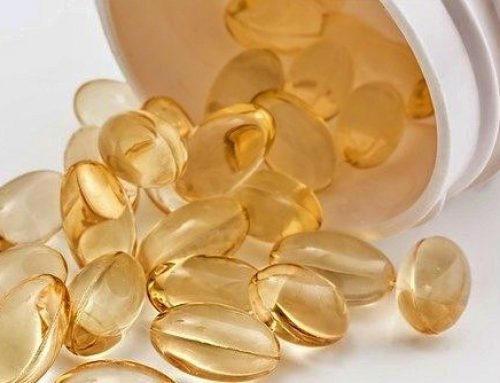As explained on Eating Disorder Hope, body image is how we see ourselves. Having a negative body image means that one holds an unrealistic view about their body and similarly to eating disorders, this health problem is more common in women, although it can happen in men too.
From early childhood, people start to form their own perceptions about the health, attractiveness, and functionality of their body and this image continues developing as we age and receive feedback from family, friends, peers, colleagues, etc. It is important to point out that some character traits like self-criticism and perfectionism can contribute to the creation of a negative body image.
Positive vs. Negative Body Image
A positive body image, as explained by the National Eating Disorder Association, means that one has a genuine perception of their body shape and sees different body parts as they are. A person with a positive body image feels comfortable and confident in their body, accepts his/her natural shape and size and understands that their physical appearance has little or nothing to do with their personality and value as a person.
On the other hand, a negative image stands for an unrealistic perception of one’s body and shape and it is accompanied by feelings of anxiety, shame, and self-consciousness. These individuals are unsatisfied with how their bodies look and consider them to be flawed when compared to other people’s bodies.
Similarly to eating disorders, body image problems can occur in anyone, regardless of gender, culture, and age. When it comes to gender, there are specific societal pressures and potential causes of negative body image, i.e. beautiful women are often associated with thinness while good-looking men are considered to be those who are muscular and lean.
The Link between Negative Body Image & Weight
According to Medical News Today, for a lot of overweight and obese individuals (although not necessarily the case), negative body image is a common issue. Also, the more emotionally insecure a person is, the more prone they are to creating a negative body image. Studies point out that women and girls who have greater resilience, adequate family support, and those who work out and take proper care for their health and well-being are less prone to negative body image. It is important to note that men can also struggle with negative body image; however, they tend to be a lot more silent about their body image.
Negative Body Image & Eating Disorders
Another contributing factor to negative body image, besides weight problems, is suffering from an eating disorder. Namely, negative body image, as emphasized on Very Well Mind, is not uncommon among people who suffer from an eating disorder. They tend to associate their body shape and weight a lot with their self-worth. This is not however the case with all eating disorders, but rather with bulimia and anorexia.
Potential Causes of Negative Body Image
1. Puberty
According to Tune in not Out, during young age, our body image can be closely associated with self-esteem and this is the period when our body goes through numerous natural changes and as the changes take place, young individuals often compare themselves with their peers whose bodies also go through the same or similar processes. Hence, this can be quite the challenging period due to the numerous ongoing changes and it can trigger uncertainty and influence our image about ourselves and our bodies.
2. Media
Nowadays, young people grow up in a world where they are surrounded with a lot of images of attractiveness in the mass media and this has created a specific image of attractiveness in our minds which we consider to be a genuine one. This way of thinking can put a lot of pressure and lead to the formation of a negative body image. Remember, the image of attractiveness is just an idea; there is no such thing as the perfect body as the media conveys and the idea of attractiveness is constantly changing. And, every human being is different and unique in his/her own way.
3. Family and friends
Since we spend most of our time with family and friends, we subconsciously compare our bodies with their bodies and often times; they may say a lot of things, both negative and positive, about how our bodies look. This can be tricky and it may lead to the emergence of a negative body image since it is challenging to ignore messages from close people. But, what is important is to remember that one is never defined by how they look; what matters is to be healthy and feel good. Whenever you feel that someone is making you feel bad about your body, remove yourself and try and surround yourself with people who encourage you to feel good, confident, and comfortable in your own skin.
4. Romantic partners
In a lot of romantic relationships, physical attraction plays a pivotal role; however, though it can be good in different ways, it must never be a crucial thing. Pressuring a partner to look in a certain way is a sign that they got the wrong priorities and it may contribute to the formation of a negative image. Express your feelings to your partner or talk to someone you trust about what you can do.
Negative Body Image Symptoms
As seen on Aura Image Consulting, here are some potential indicators that you may have poor body image:
• One of your primary goals is to lose weight for aesthetic purposes and you consider it to be more important than relationships, personal development, friends, and family. When you are trying to lose weight, make sure it is for health-related reasons only so that you reduce the chances for negative body image.
• A person with a negative body image tends to compare himself/herself with other people and wishes having their shape or height; this can be quite the destructive behavior. You need to learn to respect the uniqueness of the body of others and yours too.
• People with negative body image often talk negatively about their body and the vicious circle can easily become never ending- the more the image worsens, the more they feel bad about themselves and vice versa.
• You have poor eating habits or suffer from an eating disorder. In a lot of cases, people who consume too much junk food, skip meals, or do not eat at all usually have a negative body image.
• Disliking what you see in the mirror is a sign of a poor body image. If you constantly see parts for how big or small they are, then you may have a problem. Instead of criticizing your body when you stand in front of a mirror, smile, realize how wonderful and unique you are, and be thankful for the blessings of life that you are experiencing.
Treatment Options for Negative Body Image
According to ISA Power, enrolling for treatment is a pivotal step towards recovery and the problem will not go away on its own once it begins. In most cases, patients with negative body image are advised to undergo cognitive-behavioral therapy with a trained professional. The goal of the therapy is to help the patient recognize and acknowledge their feelings and body sensations and thus, become more comfortable in their own body and also to lower the suppressing of feelings that lead to unhealthy and negative self-criticism. This is achieved through analyzing and restructuring negative thoughts.
Other potential treatment for negative body image is dance and movement therapy whose purpose is to help one develop greater appreciation and trust in their body through the creation of internal experiences, rather than just focusing on the body from an aesthetic point of view.
Useful Tips for Reducing Negative Body Image
In order to feel better about yourself and thus, better your body image, check out the following tips offered by Medical News Today:
Remember beauty is never solely about appearance
Celebrate your body and what it can do by swimming, singing, dancing, etc.
Write ten things you like about yourself and place the list somewhere where you can see it
When you stand in front of a mirror, look at yourself as a whole, not as a thigh, a belly or a nose
Wear comfy clothes that feel and look good on you
Be a positive thinker: overrule the negativity with positivity
Be critical of messages in the media or images that make you feel as if you should be different
Find time to do nice things for your body, get a massage or a haircut
Replace fretting with a hobby or working out



Leave A Comment